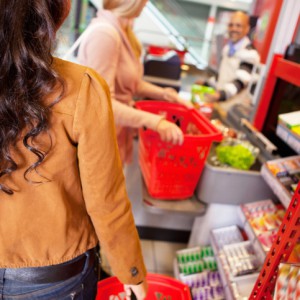Illegal Food Stamp Trafficking Up 30 Percent Since
Post# of 512

Illegal Food Stamp Trafficking Up 30 Percent Since 2006

Last week, the U.S. Department of Agriculture (USDA) released a study on the illegal resale of food stamps under the Supplemental Nutrition Assistance Program (SNAP). The report found a 30 percent increase in the proportion of SNAP recipients who illegally sell their SNAP credits back to stores, which fraudulently redeem the credits by paying the SNAP recipients the credits’ cash value.
The 30 percent jump has been incremental, dating back to 2006 — the earliest period covered in the study. Food stamp trafficking fraud now accounts for an estimated $858 million per year in diverted SNAP funds, compared with $330 million in 2006.
The SNAP program itself has also grown immensely since President Barack Obama’s aggressive expansion of the program’s reach, with last year’s benefits totaling more than $74 billion — compared with $34 billion in 2008 .
Predictably, the study links the increase in SNAP fraud with the commensurate increase in the Obama-era expansion.
And even though the dollar value of misappropriated SNAP funds represents a smaller percentage of the entire SNAP budget today than it did during Bill Clinton’s Presidency (3 percent now, compared to 4 percent in the mid-1990s), technology is likely to thank. The program’s full-scale adoption of point-of-sale, declining-balance debit cards, which debuted in limited numbers in the late 1980s, took human “error” out of the old process of exchanging and tracking government-issued paper scraps of fiat food currency.
But personal relationships and the low-budget exigencies of mom-and-pop economics still combine to account for the bulk of transactions in which “customers” swap Food Stamps for cash.
The U.S. Food and Nutrition Service’s press release for the study states: “[T]he report attributes the change in the rate to 1.3 percent primarily to the growth in small- and medium-sized retailers authorized to accept SNAP that may not provide sufficient healthful offerings to recipients. These retailers accounted for 85 percent of all trafficking redemptions. This finding echoes a Government Accountability Office (GAO) report that suggested minimal stocking requirements in SNAP may contribute to corrupt retailers entering the program.”
http://personalliberty.com/2013/08/20/illegal...ince-2006/
 (0)
(0) (0)
(0)